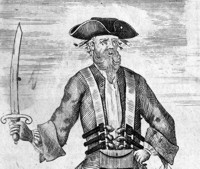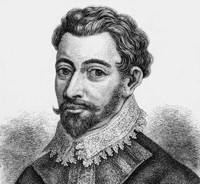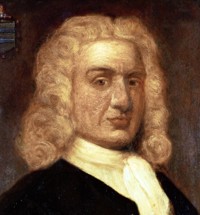|
PIRATES
By definition PIRATE are gangs of thieves who, on their own behalf and for their own benefit, without discrimination of prey, attack ships at sea or assault populations on land to take away their belongings and in most cases kill the crew of the ships or settlers of the colonies.
Generally, pirates were people denied by society who by necessity or profession were thieves, among their recruits were the poor of fortune, convicted criminals, wretched and wanderers, deserters, persecuted, outlawed and murderers. They were characterized as bloodthirsty and unscrupulous people who took pleasure in the torture and murder of their prisoners.
Initially they were only robberies and small skirmishes that with the buccaneers became great looting and confrontations of pirates and privateers against enemy authorities and the attack on their populations and subsequent conquest of the settlements.

Since the 16th century there are pirates in the Caribbean Sea, which together with the buccaneers and filibusters had their greatest boom between the 17th and 18th centuries. Many pirates, in times of war, became privateers with a patent according to the nationality of their financiers or sovereigns. There were pirates of all the nationalities of Europe, there were also slaves from Africa and even indigenous people from America who despite the differences developed a collective culture of the pirates. The behavior of the pirates worked very similarly to what was the Brotherhood of the Brothers of the Coast, of the buccaneers. Some important aspects of the Pirate Code was that:
The captain was the maximum authority of the ship, some crimes could be tried by the Council of Elders in the Turtle Island.
Generally, the punishment for homicide was to throw it overboard tied to its victim or left on an islet to die alone.
For minor offenses the convict was abandoned in Spanish territory with a bottle of water and a gun with some ammunition. This punishment is called Maroon.
Other punishments were deprivation of loot, passing through the keel, and sometimes lashes.
The differences between two pirates were resolved through a duel with guns or sabers.
Frequently for valuable prisoners, these were exchanged with the payment of a ransom, the less fortunate were tortured until they confessed where their treasures are.

|
John Hawkins |

|
Barbanegra (1680/1718) Pirata ingles |

|
Francis Drake, pirata y después corsario ingles |

|
William Kid (1645-1701), Scots nicknamed "pirate hunter"
Kidd received the nickname of "pirate hunter" due to his beginnings of privateer. According to sources, Kidd was a sailor in the service of the British Navy, which in December 1695 would receive the Corsican patent from King William III of England. His friend, Governor Bellomont, charged him with the task of attacking pirates such as Thomas Tew, John Ireland, Thomas Wake and William Mazem capturing these last three.On October 30, 1697, Kidd would murder his entire crew in cold blood because they were infected by cholera.As a result of this incident, Willlliam Kidd would begin his stage as a pirate, standing out for capturing the Quedagh Merchant an Armenian brig full of gold, precious jewels and slaves that would sell them in the Caribbean. |
|
| |




